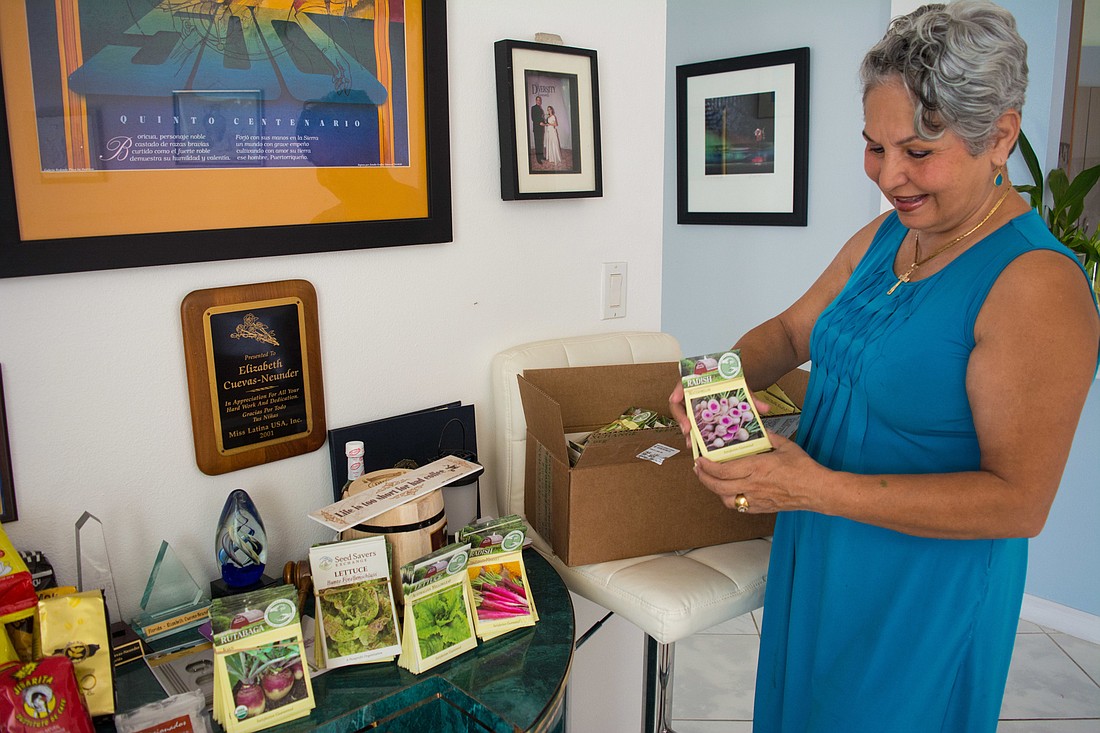- November 23, 2024
-
-
Loading

Loading

Hurricane Maria left Puerto Rico’s farms devastated when it dragged across the island as a Category 4 storm in September 2017. Small-scale farmers in Puerto Rico are still reeling from the hurricane’s impact, which wiped out fields and crushed infrastructure for livestock. Puerto Rico’s Department of Agriculture estimates that the storm destroyed 80% of the island’s crops, resulting in $780 million in agricultural losses.
Elizabeth Cuevas-Neunder, CEO and founder of the Puerto Rican Chamber of Commerce of Florida, is on a mission to help the farmers of Puerto Rico facing the long road to recovery after Maria.
In May, she will travel with a group of volunteers to the island to deliver seeds, supplies and money to farmers. It will be the PRCCF’s third trip to Puerto Rico to provide farmers with much-needed aid.
The nonprofit, which is based here is Sarasota and formerly called the Puerto Rican Rican Chamber of Sarasota Manatee Counties, was founded in 2006 to foster trade between the island’s agricultural industry and Florida.
“We are focusing on small farmers in Puerto Rico because they are the first responders when it comes to any kind of catastrophe,” Cuevas-Neunder said. “They are the ones who give jobs to those in the surrounding area and who see first hand what the communities needs are.”
Cuevas-Neunder established the Puerto Rico Farmer’s Fund in November to collect seed and money donations. The fund has helped 125 farmers so far, but Cuevas-Neunder said the applications for aid keep coming and she expects to help 500 farmers financially by the end of the year.
“It was very touching to meet with them during our first two trips,” Cuevas-Neunder said. “It is overwhelming for them that someone cares.”
The seeds that were given to farmers during her trip in February are already bearing crops which farmers are collecting to sell to local markets in their community.
“I always tell the farmers that their hands are blessed,” Cuevas-Neunder said. “They are the ones that provide food for humans and animals, and no matter the farmers’ situation, they will always be the chamber's first priority.”